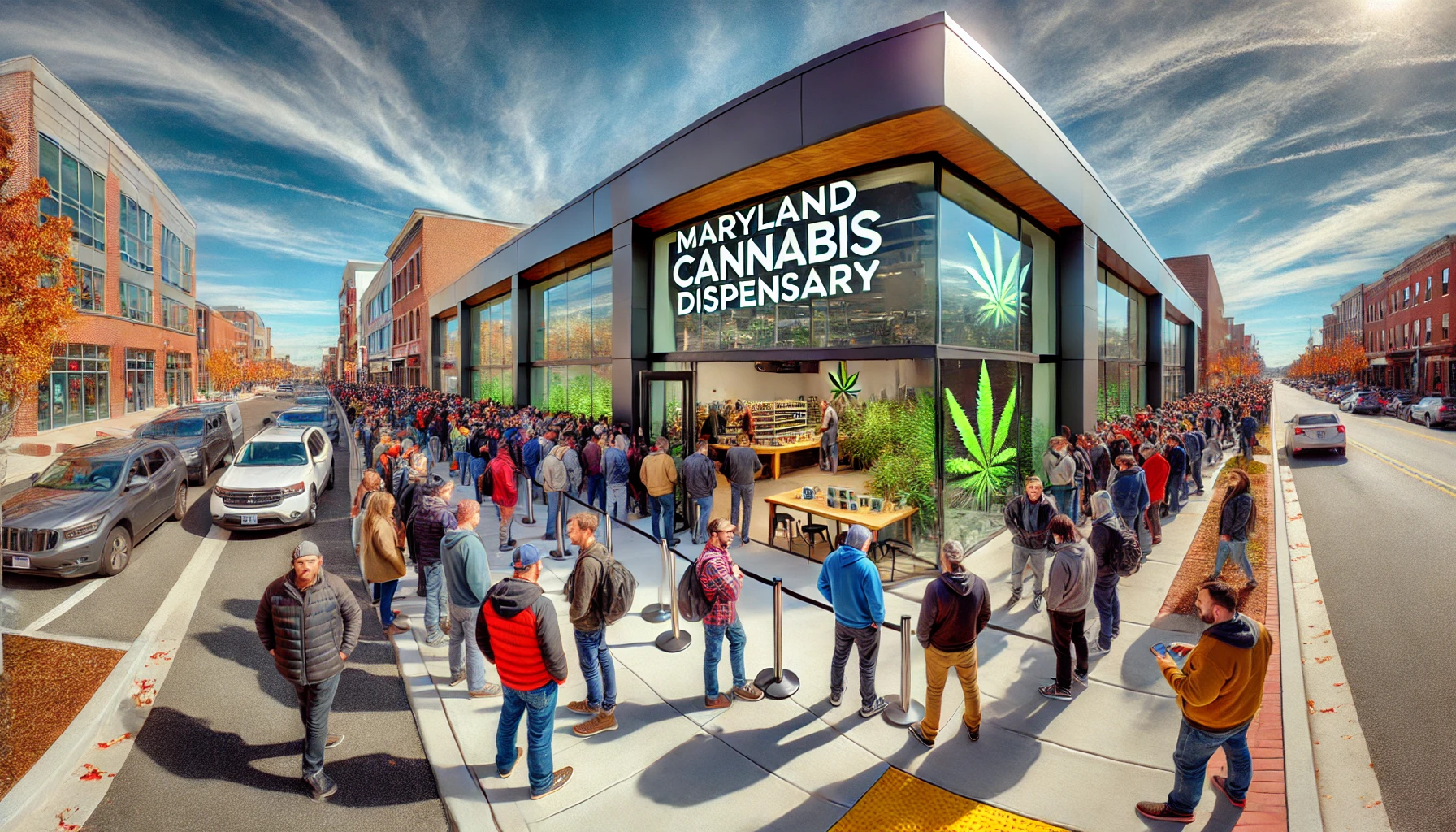On July 1, 2024, Maryland officially launched its adult-use cannabis market, marking a significant milestone in the state’s journey towards cannabis legalization and social equity. Governor Wes Moore signed the legislation that set the stage for this launch, following voter approval in the November 2022 election.
Legislative Background and Goals
The journey to legalization began with Maryland voters approving a constitutional amendment to legalize adult-use cannabis. Following this, lawmakers crafted a comprehensive bill to regulate the market. The new legislation aims not only to allow adult-use cannabis but also to address the long-standing impacts of criminalization on low-income communities and communities of color.
Governor Moore emphasized the importance of using legalization as a tool for social justice, stating, “We want to make sure that the legalization of marijuana lifts those communities now in a profound way.” This focus is reflected in various provisions of the law designed to support social equity applicants and reinvest in communities disproportionately affected by the war on drugs.
Key Provisions of the New Market

The new law establishes the Maryland Cannabis Administration, a state agency responsible for overseeing both the medical and adult-use cannabis markets. Here are some of the key features of Maryland’s adult-use cannabis program:
- Social Equity Focus: The legislation includes a strong emphasis on social equity. Social equity applicants—individuals from communities disproportionately impacted by cannabis prohibition—will have priority in the licensing process. An independent social equity office will provide small business consulting and technical support to help these applicants succeed.
- Taxation and Revenue Distribution: Adult-use cannabis sales will be subject to a 9% sales tax. Revenue generated from this tax will first cover the administrative costs of the cannabis program, with 35% of the remaining funds allocated to the Community Reinvestment and Repair fund. This fund aims to support the revitalization of communities most harmed by drug enforcement policies.
- Business Licenses: The state will issue various types of cannabis business licenses, including standard and micro licenses. Standard licenses are designed for larger operations, while micro licenses aim to lower the capital barriers for smaller startups. Existing medical cannabis dispensaries can convert their licenses to serve the adult-use market, provided they maintain adequate supply and services for medical patients.
- Local Regulations: The legislation prohibits local governments from imposing their own taxes on adult-use cannabis but ensures they receive a share of the state-collected tax revenue. New dispensaries must be at least 500 feet from schools, playgrounds, libraries, or public parks, and at least 1,000 feet from another dispensary.
Looking Ahead
Maryland’s launch of its adult-use cannabis market represents a significant step towards creating a more equitable and economically beneficial landscape for its residents. By prioritizing social equity and community reinvestment, the state aims to rectify some of the injustices caused by decades of cannabis prohibition.
As Maryland continues to roll out its adult-use market, it will be crucial to monitor the impact of these measures on the communities they aim to uplift and the overall economic health of the state.


